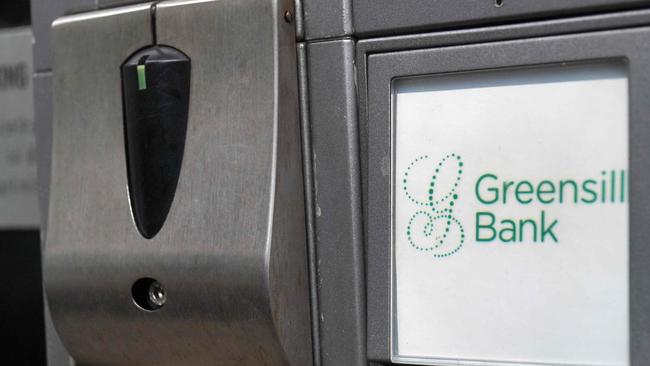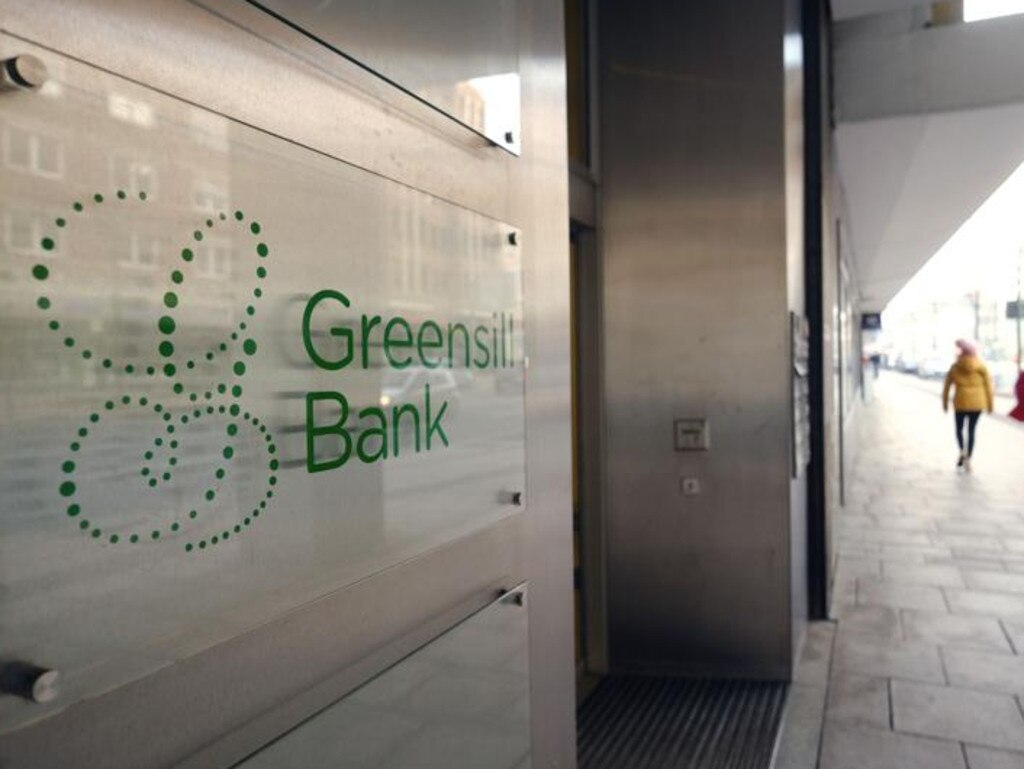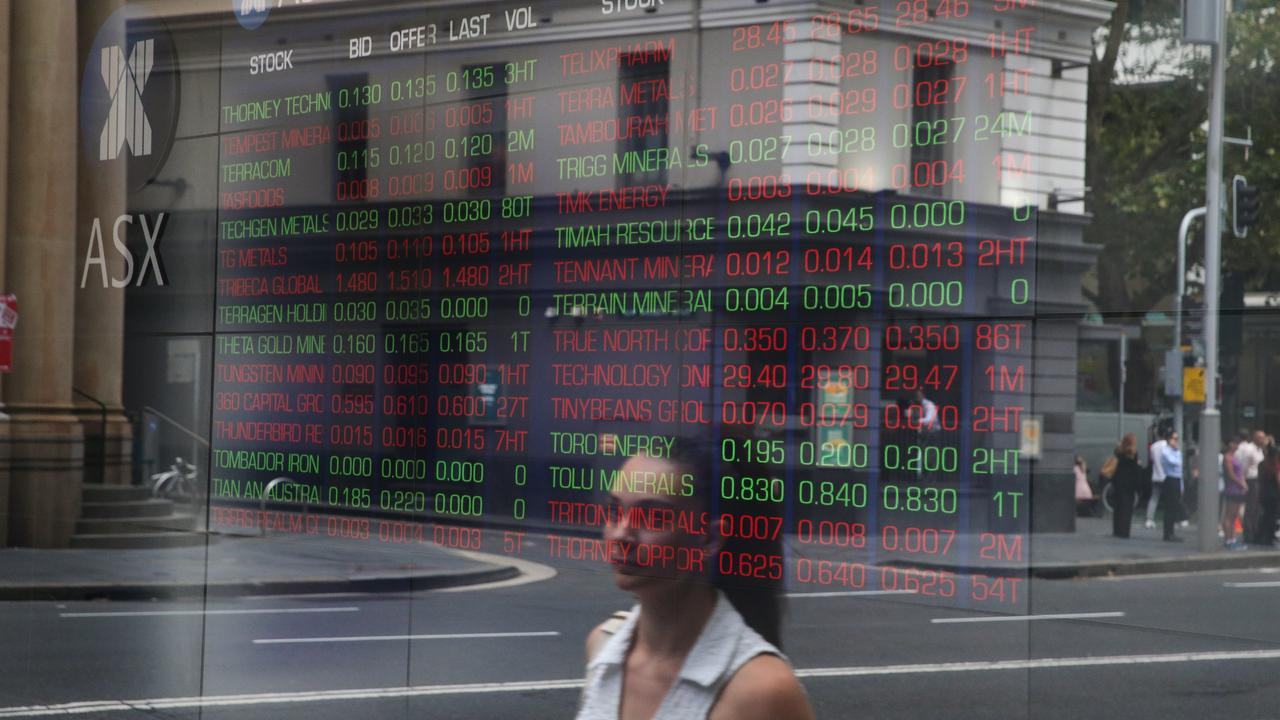Greensill Capital planned brand refresh, filing new trademarks before its $US7bn collapse
Greensill remained upbeat about the company's prospects, even as it was fighting with its insurers to stave off insolvency.

Collapsed global financier Greensill Capital was preparing a major brand refresh, lodging new trademarks with the Australian regulator late last year as it was negotiating with its insurers to renew $4.6bn in policies in a desperate move to stay afloat.
The company, founded by Bundaberg farmer turned financier Lex Greensill, filed two trademarks with IP Australia in October and December, both stylised letters - a G and an E - in shades of green.
The filing came as Greensill was spruiking a $US600 pre-IPO capital raising, which was expected to value the company up to $US7bn. But it was quickly abandoned, with Greensill calling in Grant Thornton in late December to provide contingency planning advice - ranging from a restructuring to insolvency, as the company battled with its insurer to retain coverage.
The stylised E, filed on October 30, had a broad range of uses, which provided a glimpse of what Greensill was hoping to fuel its next wave of growth, strengthening the company.
The E was set to be used for a range of goods and services, ranging from computer software and mobile phone apps to credit and other banking cards, with Greensill leveraging wages on demand via its Earnd app, which it acquired from an Australian fintech startup in March.
Mr Greensill had pitched his wages on demand platform via its Earnd app to directly to former finance minister Mathias Cormann at last year’s World Economic Forum in Davos, which would have been a significant coup for the company.
If Greensill secured the Commonwealth as a customer, it would have potentially allowed Greensill to tap into the government’s AAA credit rating and used that to issue bonds via its Greensill Bank and strengthen its balance sheet to funding its controversial supply chain financing platform.
Unlike other big supply chain finance players such as J.P. Morgan and Citibank, Greensill Bank had a relatively small balance sheet, with the company becoming increasingly reliant on Sanjeev Gupta’s GFG Alliance, which owes Greensill about $US5bn and counting
Greensill had already secured the UK National Health Service as a client for its wages on demand service and thought it was understandable that the Australian government would follow suit, allowing 150,000 federal public servants to receive their wages earlier.
But Mr Cormann dismissed the idea after the Finance Department said it was “economically similar” to payday lending in a briefing document ahead of Mr Cormann’s with Mr Greensill. Mr Greensill, meanwhile, emphatically rejected suggestions his products were similar to payday lending.
According to its website, Earned does not affect an employee’s income level, it “simply removes the reliance on a particular payday and allows you to access up to 50 per cent of your earned net income before payday”.
“When we bought Earnd in Australia, for example, the next day we waived all of the fees that had been commercially negotiated for employees to pay and we made it free for everybody,” Mr Greensill told The Australian in December.
“I’m not sure how being able to be paid for free every day is economically similar to payday lending.”

By the time Mr Greensill made those comments, Greensill’s pipeline of new clients had slowed, with companies cautious about adopting supply chain finance after several big businesses, including Telstra, Rio Tinto and CIMIC, had used the platform to blow out supplier payment terms beyond the standard 30 days.
The practice generally involves Greensill paying the invoice of a company’s supplier then the company paying Greensill a slightly higher amount at maturity. But companies had been charging their suppliers the extra amount, and along with extending payment terms beyond the standard 30 days gave suppliers little choice but to take a financial hit.
As early as July 2 last year, doubts about Greensill’s insurance coverage began to emerge, when one of its insurers Tokio Marine told the company that an employee at one of its subsidiaries, BCC Trade, had “exceeded his authority in certain dealings”, relating to Greensill’s policies.
By September 1, BCC told Greensill it did not plan to renew its coverage, sparking a round of negotiations that lasted until last month, which culminated in Greensill taking the extraordinary step of suing BCC, Tokio Marine as well as Insurance Australia before it was placed into voluntary administration last week.








To join the conversation, please log in. Don't have an account? Register
Join the conversation, you are commenting as Logout